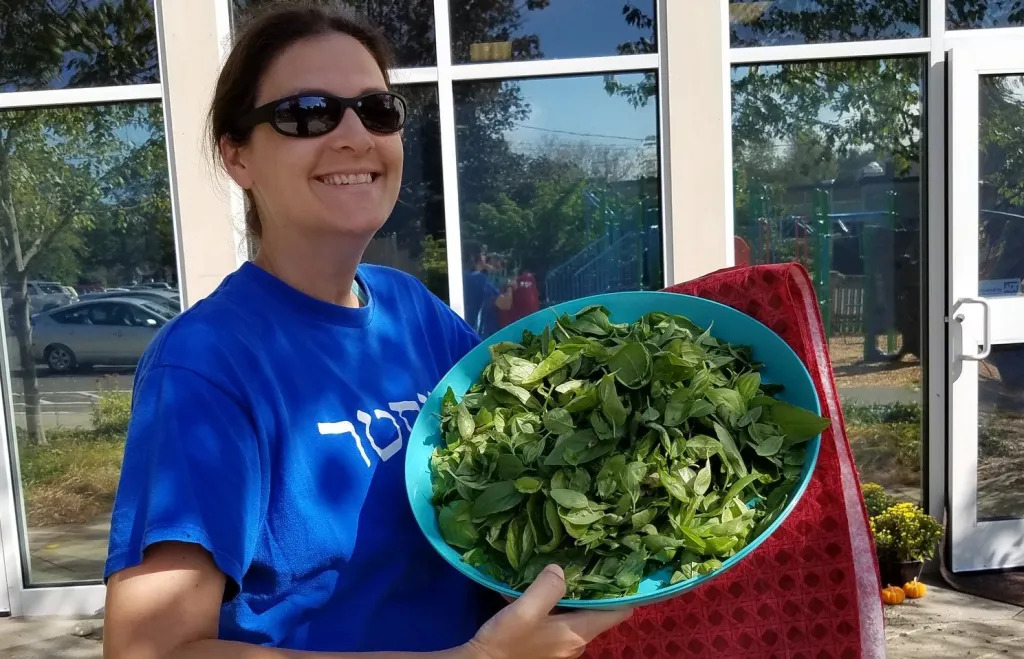
Years as a teacher: 20
Years at LGA: 18
Why did you become a teacher?
I have always loved working with people, but especially kids — whether it was as a coach, counselor, tutor, or babysitter.
I grew up thinking I would be a doctor because it combined my love of science with my love of being with people. After I graduated from UMass, I took a year off before applying to medical school, and joined Teach for America, teaching 6th grade science and reading in Baltimore, Maryland. It was then I realized that teaching allowed me to do something I loved and positively affect people around me.
What drew you to teach at LGA? What do you love about teaching here?
I am a grown-up Schechter kid, having attended SSDS Worcester for nine years. I never would have guessed in a million years that I would end up teaching at a Jewish Day School.
When I was finishing my master’s in secondary science education at UMass, I did a quick internet search for schools in the area, and the Solomon Schechter Day School of the Pioneer Valley popped up. I called and spoke to Sandy Warren, the principal at the time, and asked if I could just come for a tour because I was so curious about what a Jewish school in Northampton would look like.
During my visit, I was completely charmed by how similar it felt to my own childhood elementary school experience. As it happened — or as it was meant to happen — the school was in need of a 6th grade teacher for the pioneer class and I was looking for a teaching job. I was 24 at the time and I’ve been here ever since.
What is your favorite subject to teach?
I love teaching science because it there is so much to learn. New discoveries are being made constantly and what we think we know is always a work in progress.
Within science, I love working with kids to increase their understanding and experience. There are so many tactile experiences kids have already had by being the natural investigators that they are, and there are endless real world applications. I get most excited when students can apply those math and science skills to new scenarios to make sense of our world.
I also love co-teaching Human Growth and Change with Neil (Moreh Nachum). Seeing how quickly our students adapt to intense topics with such enthusiasm and good humor is amazing. It’s definitely the most fun we have all year and something that kids look forward to, which says a lot given the topics we cover.
What is your favorite activity that you do with students outside of the main curriculum?
There are many things I love sharing with my students. Our week at Teva is always something I love sharing with class and it is a great bonding time for the group.
I love getting the kids out on the farm putting in some sweat equity to do our part to help the farm grow in every way.
But the most rewarding experience I’ve had is the work we’ve done over the years supporting Jewish Family Services of Western Massachusetts. Between raising money to purchase items for refugee families, to holding clothing and toy drives, to setting up an entire apartment for a new family, these experiences will stay with our students for the rest of their lives. I hope that they leave LGA inspired to continue to participate in Tikkun Olam.
How is LGA different than other schools?
All good teachers try to connect with their students and build relationships, but I think that LGA teachers take this to a whole other level. Not only does every teacher develop a special relationship with each student in their own classroom, but since our school is small, we can build those bonds with every student in the school.
We watch these kids grow more and more into themselves over their seven years with us and when they leave, we strive to keep those connections strong. I think it’s rare for college-aged kids, and older, to have any connection to their elementary school teachers, but we often have kids stop by to visit in person or stay connected through email and social media.
I take a lot of pride in knowing that our alumni remember us as people who are always rooting for them and keeping tabs on what they are up to.
What benefits do you see from our dual general studies and Judaics curriculum?
This is something that I can speak to as a teacher, and as a product of a dual-curriculum school.
When I graduated SSDS and went to public school, it was immediately clear that all those years of text study put me at a huge advantage in my literature-based English classes. I was easily able to closely analyze a piece of writing from multiple angles and find evidence to support my ideas elsewhere in the text.
I hear the same things from those teachers lucky enough to have our alumni in their classrooms. I’ve had many teachers tell me that they can immediately pick out the LGA student from their rosters, and that they are a pleasure to have in class. Not only are our kids motivated and respectful learners, but they approach their work in ways that stand out.
Our students can sit with challenging texts, in a variety of subjects, and take risks making predictions and thinking outside the box because they know how to back them up with evidence from what they are reading. We also have several kids each year that are in accelerated math (covering curriculum that is anywhere from one to four years ahead of where the rest of their cohort is).

Copyright © 2025 Lander-Grinspoon Academy. All rights reserved. Website designed by Addicott Web.